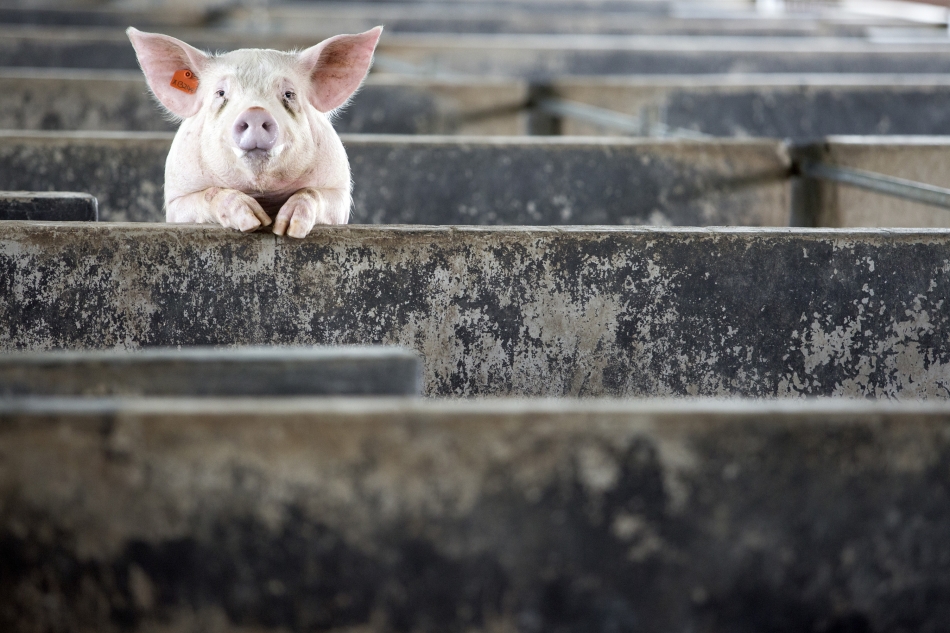22/03/2021 In Europe and Central Asia, FAO has remotely trained hundreds of animal health professionals in African swine fever (ASF) preparedness. African swine fever is a viral disease of pigs (and wild boar) with a lethality rate of up to 100 percent that leads to huge economic losses, trade disruptions, and challenges to livelihoods. Rampaging throughout three continents, never before in history has the disease had such a wide distribution with so many millions of pigs affected and killed.
In 2007, ASF jumped outside Africa and into Georgia, and gradually spread westwards into Central Europe and eastwards all the way into China. The disease spreads mostly through the movement of infected meat, so any country in the world with a pig sector is at a high and imminent risk of an incursion of the virus and should prepare accordingly.
To ensure optimal preparedness, early detection, and response against an incursion, it is paramount to reach and train first responders – the veterinarians. Yet field veterinarians are in the field, all over the country, making the endeavour expensive and time-consuming to train them face-to-face, even through cascade or train-the-trainer approaches. Moreover, FAO could not keep up with requests for face-to-face trainings coming from affected and at-risk member countries.
In this context, it was decided to develop an online course on ASF preparedness, which was already completed by about 1 000 veterinarians not only in Europe and Central Asia but also across the globe.
An online format has obvious advantages to overcome these issues; virtual training is easy and cost-effective to scale up, can reach hundreds of people even in remote locations (as long as an internet connection is available), and allows trainees to learn at their own pace and at the most convenient times. Moreover, with COVID-19-restrictions in travel and face-to-face meetings, online learning has allowed FAO to continue delivering much needed training in preparedness to member countries.
Language is a key challenge when developing training for a varied international audience. The online learning materials were designed to be readily translatable into additional languages.
Technical materials for the course were created based on FAO's existing materials by a team of in-house ASF experts and partners, including the Friedrich-Loeffler-Institute (Germany), Lithuanian Veterinary Services, and INIA-CISA (Spain). The materials were then converted and adapted into an online format with the assistance of the European Commission for the Control of Foot-and-Mouth Disease (EuFMD). The result was a 4-week online course of seven modules that can train up to 500 veterinarians at once. The training was developed using a combination of modalities, including interactive self-directed online modules, videos, live webinars, quizzes, and an online discussion forum. The interactive online modules utilize case study exercises and real-life examples. The course is hosted on a Moodle-based virtual learning environment.
This mix of learning modalities allowed participants to study at a time and pace that suits their busy schedules. Critically, the live webinars and discussion fora allowed participants and international experts to interact with each other, adding a vital “human element” to the training. Participants from different countries could exchange challenges fighting the disease that were often similar. In addition, participants from countries already affected by ASF shared their experience with others from countries currently free of the disease. Participants were also able to put questions to international experts.
Participants who go through all the modules, participate in the forum, and pass a final test receive official certification. In addition, each participant completes an assessment of the course, what they thought about the experience, and how the training could be improved.
The course was piloted in November–December 2019 with an open call to colleagues from different disciplines from around the world. The main goal was to receive feedback to further improve the course. The current course was reviewed following the feedback. The training was then launched in English in April–May 2020 for 450 animal health practitioners from 36 European countries. Due to the maximum limit of participants, nominations were provided by veterinary services following pre-allocated numbers for each country.
Afterwards, the course was translated into Serbian and offered to participants in eight Balkan countries in July 2020, where the disease had been recently introduced. The course has since been adapted to and delivered in other regions.
The course was so successful that further FAO offices decided to adapt and use the training. Last summer, the course was adapted and run for Asia and the Pacific (involving 27 countries) and Latin America and the Caribbean (38 countries, as well as translated into Spanish).
A total of 986 participants completed the full course and received a certificate.
A Russian-language version is already in the pipeline for 2021, and further versions are being discussed for Southern Africa, as well as individual countries, such as Canada and Spain, who have requested to replicate the course to train their veterinary staff. Moreover, a stand-alone, open access, shorter version of the course is also planned.
Learn more:
FAO pilots a 4-week online training workshop on African swine fever preparedness
FAO launches African swine fever preparedness online course for Europe
FAO trains online 350 field veterinarians from the Balkans on African swine fever preparedness
FAO and MammalNet joint app helps detect African swine fever in wild boar
Coordination remains crucial for African swine fever preparedness in the Balkans
Multi-country simulation to test animal disease preparedness in the Balkans
